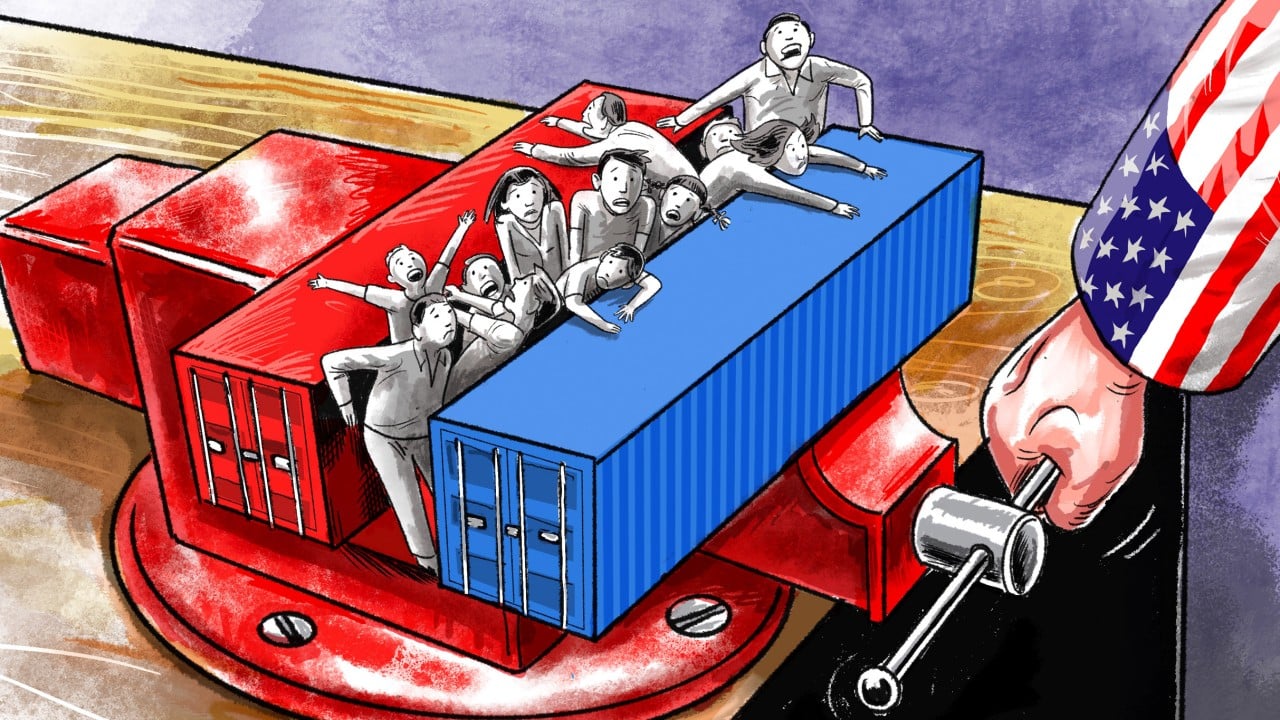The US and China are engaged in a full-on trade war. With tariffs ratcheted up over a matter of days earlier this month to stratospheric levels on both sides, what was once a simmering conflict is being pushed to the boil.
Advertisement
The Trump administration has imposed additional import taxes of up to 145 per cent on Chinese goods entering the US, while Beijing has retaliated by raising new tariffs on American products to 125 per cent. The tensions between the world’s two largest economies are overshadowing practically everything else.
One striking aspect of the language surrounding the US-China trade war is that it has been overwhelmingly dominated by narratives of geopolitical rivalry, economic supremacy competition and clashing values. What is missing from this debate is any meaningful engagement with the lived realities of the 1.4 billion people in China, whose lives are inevitably affected by decisions made in Washington and Beijing alike.
In casting China as either an existential threat or a product of American benevolence, Western political discourse has consistently rendered Chinese individuals invisible – denying them agency, dignity and complexity. This erasure reflects a broader pattern in which the “China problem” is framed narrowly through the lens of statecraft and great power competition.
In this language, while the Chinese government and Communist Party are the usual targets of anger, it is framed in ways that speak mostly of China as though it were a uniform, singular (and largely malign) actor.
Advertisement
Such a perspective prevents a recognition of the internal diversity and evolving aspirations that exist within Chinese society – and stands in stark contrast to the nuance typically afforded to Western polities, where there is far greater acknowledgement of complexity. The multiplicity of voices within China is largely neither recognised nor acknowledged. No wonder Chinese students and citizens living in the US are nervous of the atmosphere there.

